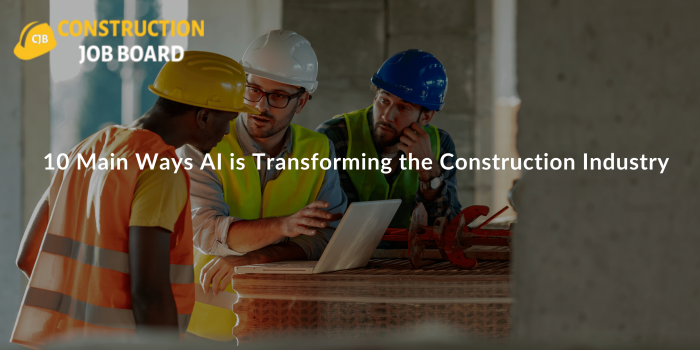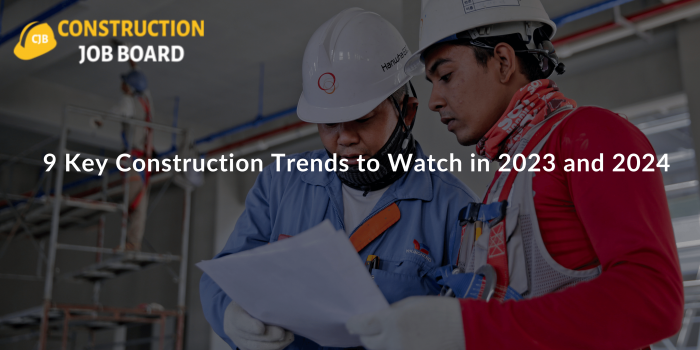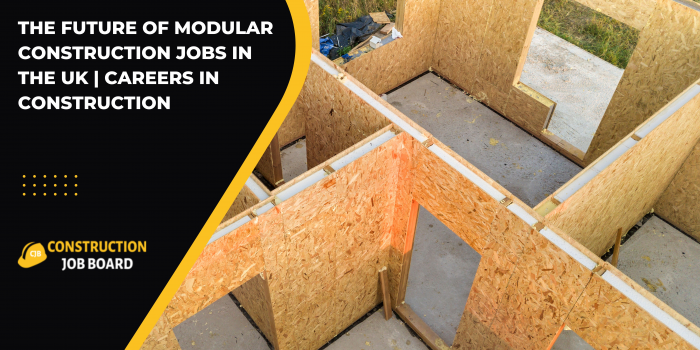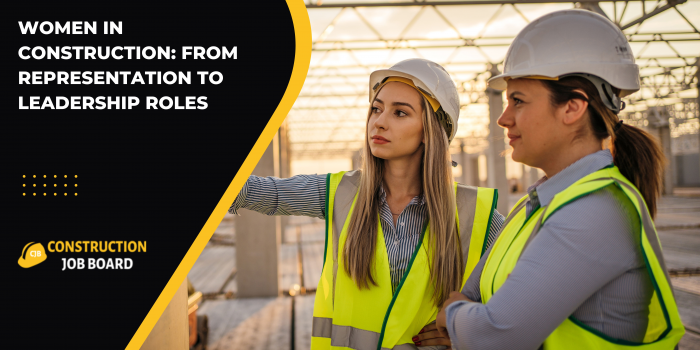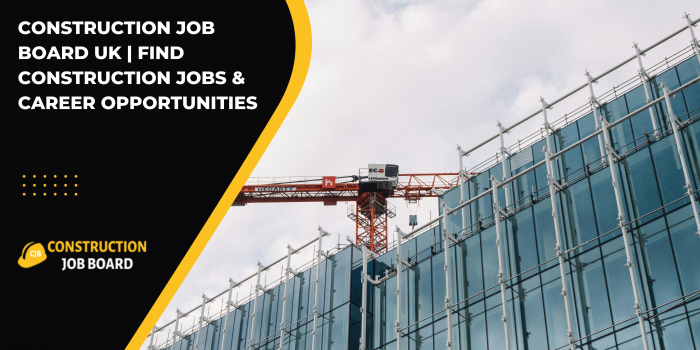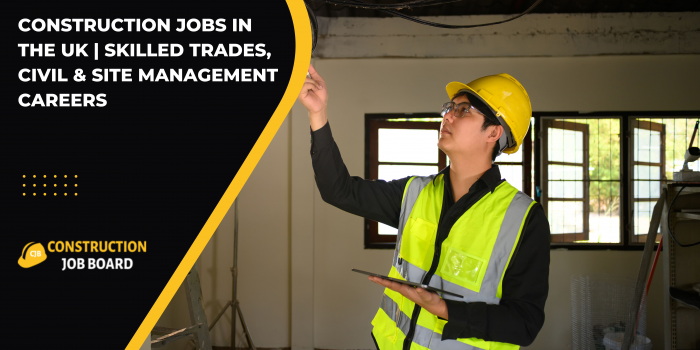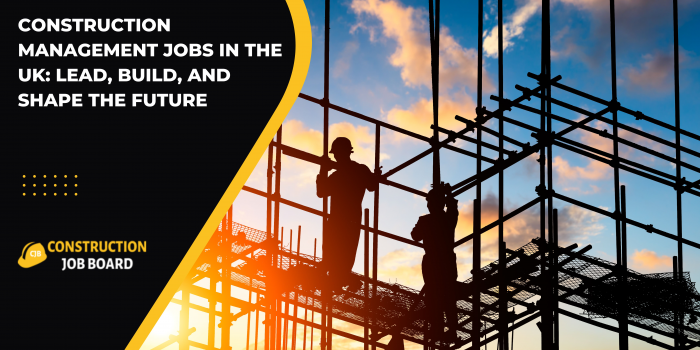Top Construction Trends in the UK 2025: Sustainability, Innovation & Smart Building
May 16, 2025

The wisdom of the construction sector in the UK is thriving in 2025 with developments in infrastructure, housing, and increased sustainability efforts. With the sector moving quickly there is a demand for skilled workers, particularly those positions that require a blend of managerial and technical expertise.
If you are starting out or looking to progress your career, it is worth looking at the most sought-after construction positions in the UK today as well as how to secure a job in the construction sector.
-
Construction Managers
The demand for Construction Managers in the UK has never been higher. Construction Managers are responsible for overseeing the entire lifecycle of a building project, from start to completion, by making sure timelines and budgets are adhered to, health and safety is overseen and completed, quality of work is ensured and standards are achieved.
The UK government is committed to investing in infrastructure projects and building new housing developments, thus creating demand for Construction Managers to enable them to fulfill project scope.
Key Skills Required:
- Project management (PRINCE2, PMP)
- Health & safety (CSCS card, SMSTS)
- Leadership & communication
Average Salary (UK): £45,000 - £70,000+.
-
Quantity Surveyors
With rising construction prices, Quantity Surveyors have become more important than ever, in respect of controlling costs and budgets; for both private developers being supervised by professional Quantity Surveyors and public sector projects.
Demand is particularly high for candidates with commercial, civil or rail experience.
-
Site Engineers
Site Engineers are key figures who help transform design into reality. They get stuck into projects on site, support teams, interpret blueprints, and check building accuracy.
Employers want to hire individuals with experience in CAD and BIM software, plus ability to store all information seamlessly.
-
Health & Safety Officer
As compliance grows greater stricter, Health & Safety roles are growing in importance. These roles help to protect both employees and employer during costly legal impacts.
Must have: NEBOSH certification or equivalent.
-
Skilled Construction Trades (Electricians, Plumbers, Carpenters)
The construction is crying out for talent, specifically in skilled trades. Not only are skilled trades in high demand, builders want those trades who have certification and experience in doing both residential and commercial works.
It is becoming quite popular for tradespeople to carry a premium value and job security.
-
Sustainability and Environmental Consultants
Green construction is thriving with the ambitions of reaching net-zero goals. Sustainable building materials, increased energy efficiency and environmental impact assessments are highly sought-after skills.
-
Architectural Technologists
Architectural Technologists work between architects and builders. They have the technical design skills to help facilitate modern building methods, efficient build process, and compliance.
-
Civil Engineers
Civil Engineers are in high demand. We see Civil Engineers working on everything from a local bridge to futher improvements in highways, urban development and rural development.
The population and community is expanding which, among many things, creates demand for workers; mainly government, housing, urban development and improving the rural assets. HS2 is bringing even more demand.
How to Find Work in the Construction Sector
If you want to break into or develop your career development within, a fast-paced environment like construction - follow these effective steps:
-
Get Qualified
Many entry level jobs in construction require NVQs or registered apprenticeship routes.
Many managerial or engineering roles will require either a degree or chartership (CIOB, ICE, RICS).
-
Get Certified
A CSCS card is needed for the majority of role requiring you to work on sites.
If you get a CSCS card or plan to get one, joining an association and getting some SMSTS, NEBOSH, or BIM accreditation can help bolster your application profile.
-
Get Experience
Some roles will involve positions such as internships, trainee programs, or work placements.
You may want to consider volunteering roles, especially on smaller builds, or community housing projects.
-
Utilize construction specific job boards
Don't confuse with general job boards. Utilize specifically construction job boards, or simply search Google using keywords like: "Demand for Construction Managers in the UK" in the search feature.
Final Thoughts:
Across many roles in the UK construction sector, e.g., construction managers, sustainability titles, were being actively advertised for and many opportunities exist. Therefore, if you are exploring your next move or considering a job in the construction industry - NOW is the right time to scrutinise this latent opportunity.
By understanding what it takes to get a job in the construction industry from qualifications where you may need to work from, to using the relevant job boards, you can secure a rewarding, long-term, positive career in a booming industry.
UK Construction Trends 2025: Frequently Asked Questions
Q1. What are the biggest construction trends in the UK for 2025?
The top UK construction trends in 2025 include sustainable building practices, smart building technology, the use of eco-friendly materials, modular and prefabricated construction, and the integration of digital tools like BIM for more efficient project management.
Q2. How is sustainability shaping UK construction projects in 2025?
Sustainability in 2025 emphasizes energy-efficient designs, green materials, and waste reduction, while ensuring projects align with net-zero carbon goals. Environmental consultants and certifications such as BREEAM and WELL are becoming increasingly important in the UK construction sector.
Q3. What role does technology play in modern UK construction?
Technology drives efficiency in modern construction through Building Information Modelling (BIM), advanced CAD software, drones for surveying, and IoT-enabled smart sensors. These tools reduce errors, improve accuracy, and optimize construction processes from design to delivery.
Q4. Why is modular and prefabricated construction gaining popularity?
Modular and prefabricated construction is becoming popular because it reduces project timelines, minimizes waste, enhances quality control, and supports sustainable and cost-effective building practices—making it a preferred choice in 2025.
Q5. How are UK infrastructure and urban development projects evolving?
UK infrastructure and urban development in 2025 focus on affordable housing, smart city designs, modern transport systems, and community-centered growth. All projects are being aligned with sustainability and net-zero objectives to ensure long-term resilience.


















